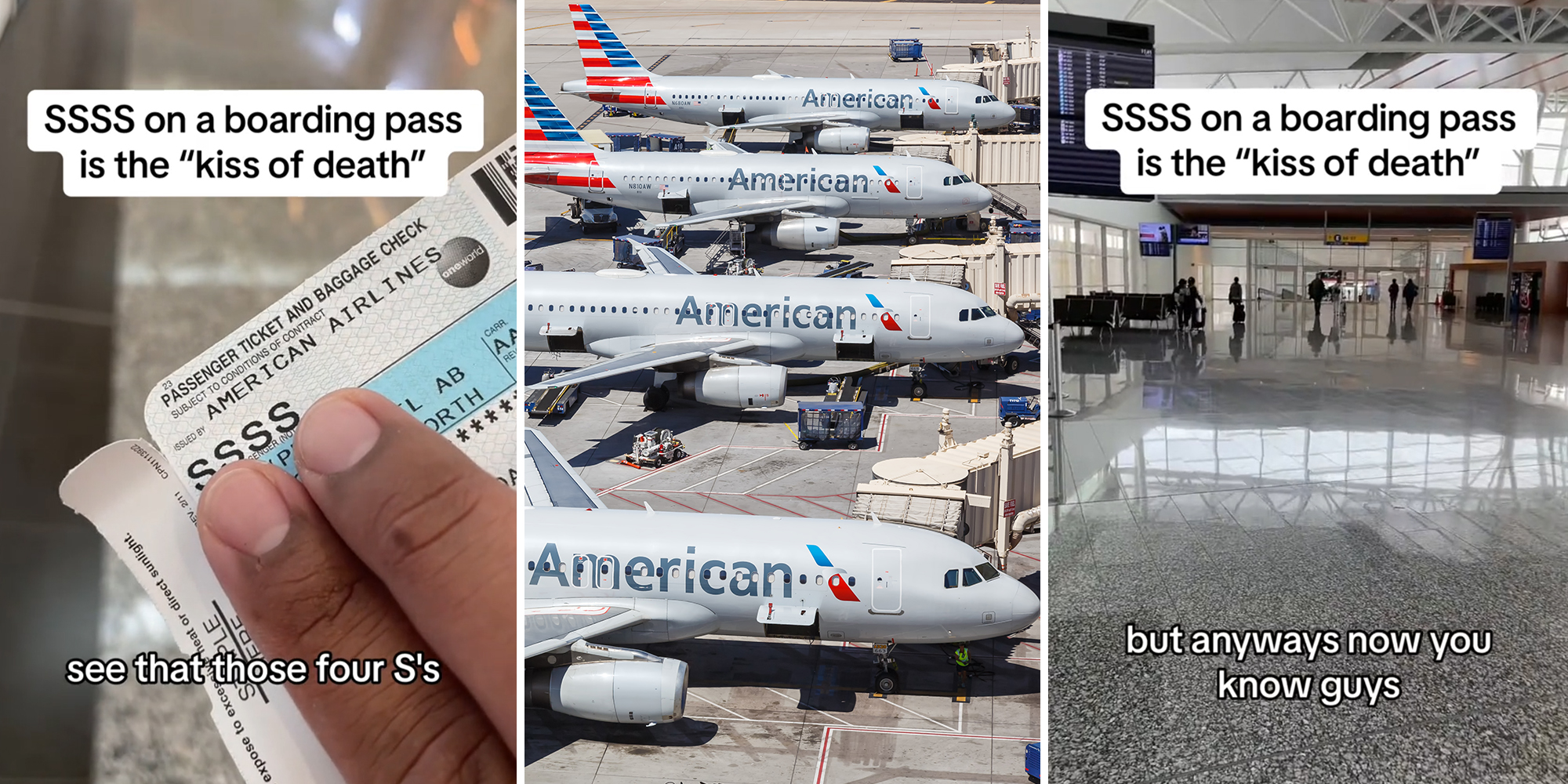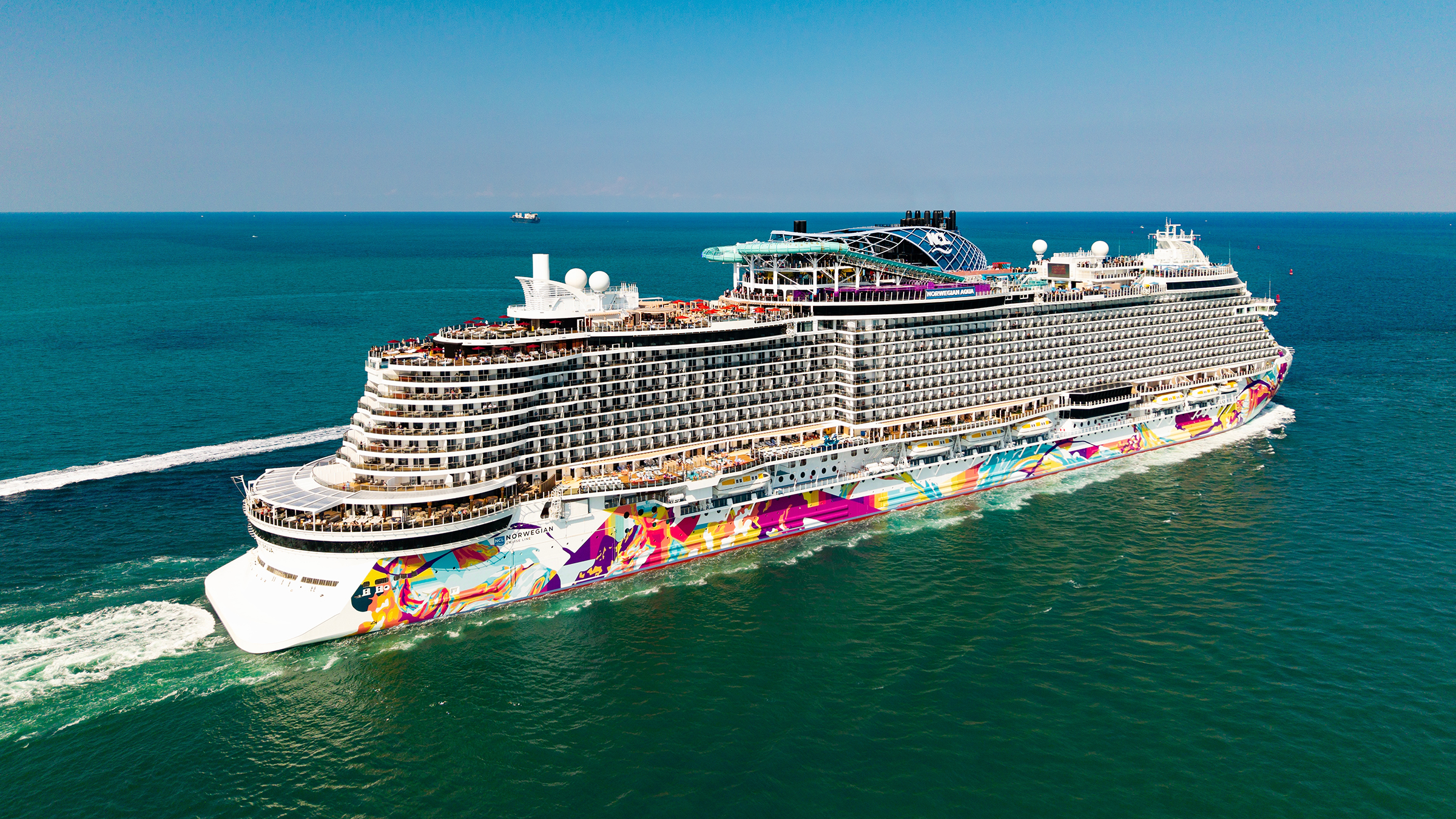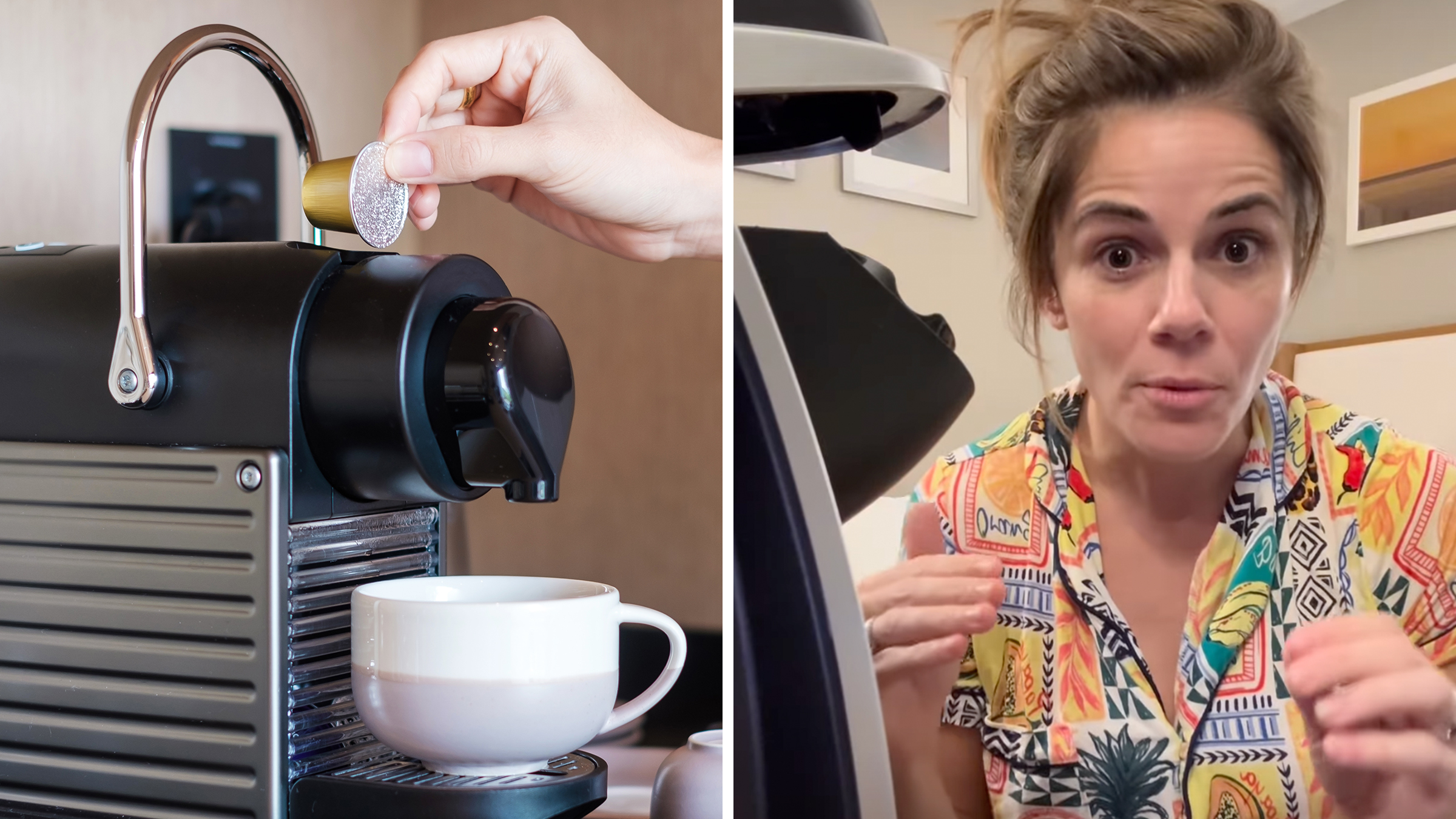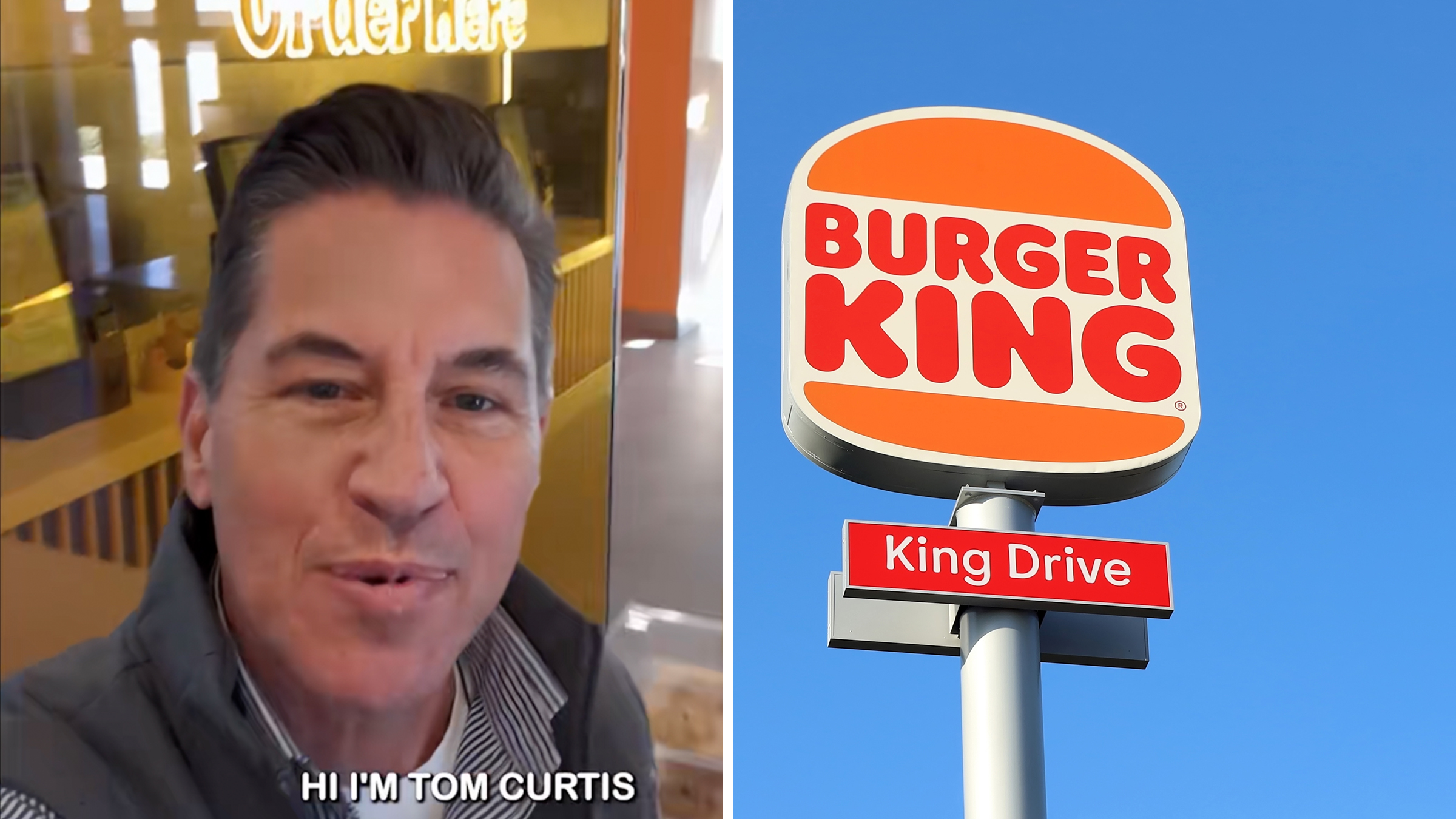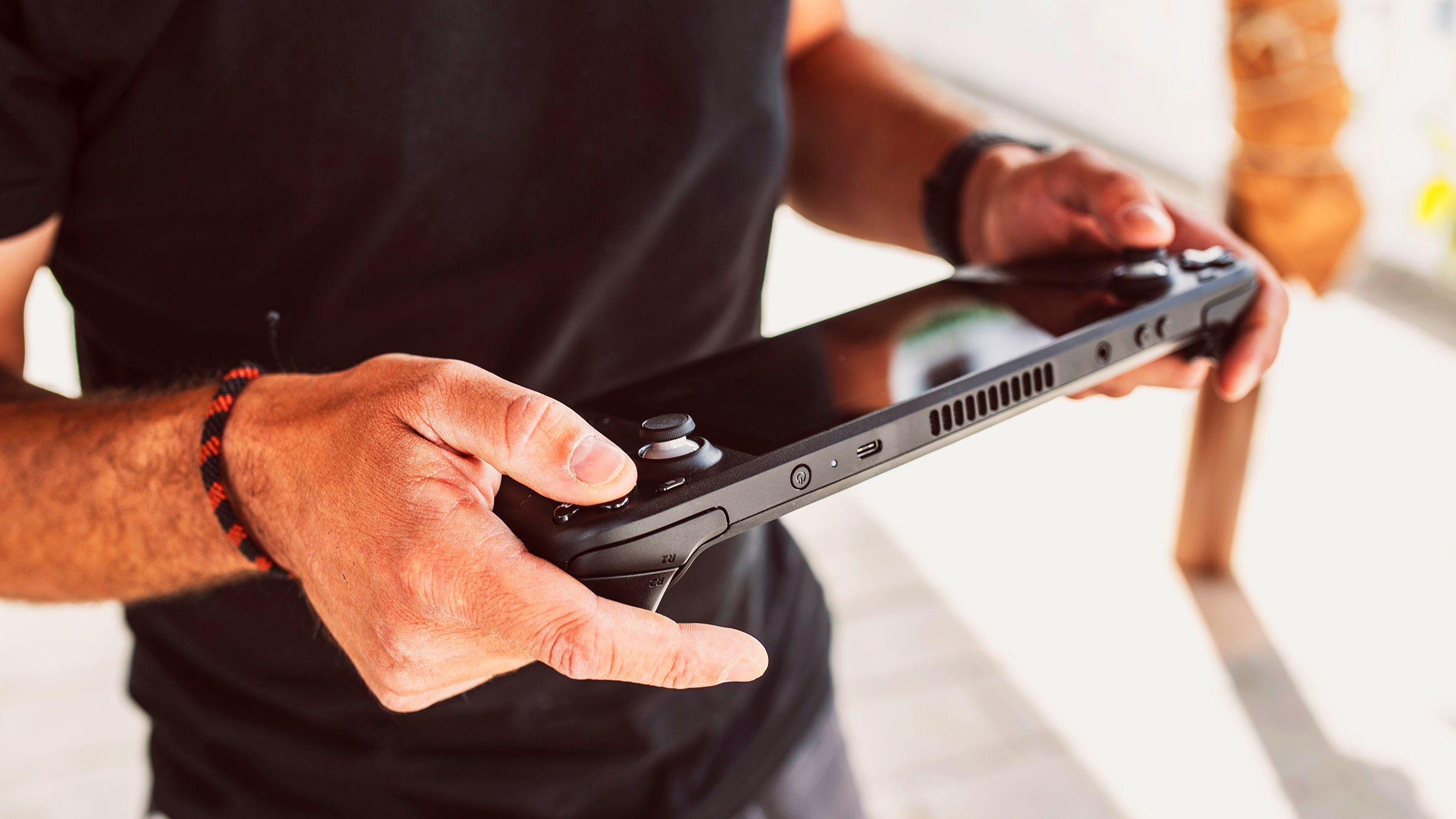If you've ever flown in the years following Sept. 11 and you had any name that sounded like it could've been associated with Islam or the Middle East, then you probably became very well acquainted with the various little symbols and markings that TSA agents will scribble on your boarding pass.
And a TikToker who goes by Spartan (@mesicanspartan), who is a self-proclaimed frequent traveler, recently just encountered a special marking on his boarding pass he is calling a death knell for commuters—if you see this marking, then get prepared for delays and being searched like you're trying to sneak plastic explosives into a maximum security prison. He posted about his experience receiving the marking in a viral clip on the popular social media application.
"SSSS on a boarding pass is the 'kiss of death,'" the TikToker writes in a text overlay of their video, which shows them holding up their boarding pass, while covering a portion of the ticket that presumably carries their personal information. However, this marking isn't one made by a gate agent, but is actually printed by the ticketing machine itself. Spartan then goes on to explain the meaning behind the 4-S code.
The clip then transitions to his point-of-view as he walks through an airport: "See that, those fours Ss? Yup, that's like a death trap. So yeah if you ever get those four Ss be prepared to be patted down four times over, and then harassed. Made fun of in front of public and everything else that comes with it. Um, and apparently I looked into it and Google and it just says it's random supposedly? Well, two things, it says if like there's a pattern or no pattern or travel or something like that, you get flagged."
He weighs the possibility that the printed quad-S code could be just a random selector for travelers who are picked arbitrarily: "Or sometimes it's just completely random. I'm hoping it's just completely random cause I travel a lot and those extra inspections can take up to half an hour more, so, obviously that wouldn't be nice and it was weird because we just got global entry."
Spartan said that he first thought the code simply meant that his global entry status kicked in, but that wasn't the case—it was pat-down time: "This is the first time I used global entry coming from Canada to the U.S. and then I get extra patted down which makes absolutely no sense. But anyways, now you know guys. Those 4 Ss are not your friend. And at first I was like oh those four Ss must mean Global Entry Status. Nope, just means that you're gonna be harassed more," he ultimately says at the end of his video.
In a caption for the video, he shared even more of the ire he felt toward the four S problem: "SSSS (four S’s) on a boarding pass are a trap! Hope you never experience the unnecessary pat down!"
According to Forbes Advisor, the four Ss aren't just an American Airlines code as Spartan's video suggests, but one that multiple airlines use. It stands for Secondary Security Screening Selection. The outlet goes on to write: "If you see this on your boarding pass it means you will be subjected to additional security screening processes. These additional screening processes may include a pat-down, swabbing for explosives and a luggage inspection."
So why do some people get this printed out on their boarding pass? Like the TikToker stated above, there seems to be two prevailing impetuses for airlines to print this on someone's boarding pass. The first reason is that it's a completely "random assignment," i.e. some algorithm or software needs to satisfy a certain number of random checks / additional pat downs during a specific time period and one person just so happens to hit a reverse lottery of sorts and needs to be touched by a person who works in airport security.
The other reason that Forbes states, however, is that folks who've received this code have been placed on a watch list for whatever reason. Even if you're completely innocent but share the same name or an alias as someone who is on this watch list, then that means there's a good chance you'll probably have this code printed on your boarding pass and you'll be getting real intimate with a TSA agent very soon: "The Selectee List, for example, is a database of passengers maintained by the TSA. If you are on the Selectee List you will automatically be chosen for additional screening each time you fly. Being on one of these lists or even if you share the same name with someone on one of these lists means you are likely to receive a SSSS on your boarding pass."
Apparently, purchasing a ticket at the very last minute or buying it cash can also potentially "trigger" this SSSS status as well. Conde Nast traveler penned a detailed firsthand piece on what it's like going through a Secondary Security Screening Selection pat down and to call the entire process inconvenient would be an understatement: "The screening was extensive: My partner and I were separated from our shoes, coats, and electronics; asked to pass through a metal detector and body scanner; and then subjected to a full-body pat down. Our hands and feet were swabbed for trace explosives. Every inch of our carry-ons was unpacked and scrutinized; same for the checked luggage. The TSA agents were polite and professional, but the delay nearly caused us to miss our flight."
Some commenters who responded to Spartan's video stated that they, too, received the dreaded SSSS and it's not an experience that they would like to go through again: "got that 'SSSS' on lay over in Mexico city and had to explain why I had 9 pounds of plastic-wrapped cubes of white cheese haha"
Another replied that they discovered they triggered the SSSS code on their boarding passes after traveling to a country (that has made headlines with regards to sex and drug trafficking) multiple times in the same year: "I got SSSS when leaving colombia after going to Colombia for like the third time in the same year soooooo there was a pattern and I didn’t care because they were nice"
There was one TikToker who rejected the idea that SSSS is ever randomized, however: "Never random. Trust me"
@mesicanspartan SSSS (four S’s) on a boarding pass are a trap! Hope you never experience the unecessary pat down! #travel #americanairlines #calgary #dfw #fyp #fypシ
♬ original sound - mesicanspartan
So what should one do if they believe they were unjustly subjected to a thorough, Secondary Screening? One person in the app recommended filing a complaint: "You can submit a complaint. If you’re wrongfully flagged,, they will give you a redress number that you can enter when you purchase tickets so you will not get the extra search"
One TSA agent replied in the comments section of the video that seeing this code on a passenger's boarding pass didn't exactly make their day either: "As a former TSA. Employee I hated seeing that too Lmaoo"
The Daily Dot has reached out to the TSA via email and Spartan via TikTok comment for further information.
Update 11:29am CT, Apr. 15, 2024:
In an email to the Daily Dot, a TSA spokesperson said these security measures begin before the passenger even arrives at the airport. They explain how TSA works closely with law enforcement and intelligence to share information.
"In some cases, passengers are randomly selected for enhanced screening," they wrote.
According to the spokesperson, TSA adjusts processes and procedures to meet the "evolving threat and to achieve the highest levels of transportation security."
"Because of this, passengers may notice changes in our procedures from time to time," they said. "TSA counts on the traveling public to report unattended bags or packages; individuals in possession of a threatening item; and persons trying to enter a restricted area or similar suspicious activities at airports, train stations, bus stops and ports."
They explain how screening is just another approach to security. The spokesperson then shared a Timeline of Transportation security events and measures:
"On Background:
· Secure Flight is a risk-based passenger prescreening program that enhances security by identifying low and high-risk passengers before they arrive at the airport by matching their names against trusted traveler lists and watchlists.
· To protect privacy, the Secure Flight program collects the minimum amount of personal information, such as full name, date of birth, and gender, necessary to conduct effective matching. Read the Privacy Impact Assessment and the System of Records Notice for information about the program's rigorous privacy protections. Personal data is collected, used, distributed, stored and disposed of according to stringent guidelines.
· Secure Flight transmits the screening instructions back to the airlines to identify low-risk passengers eligible for TSA PreCheck®; individuals on the Selectee List who are designated for enhanced screening; and those who will receive standard screening. Secure Flight also prevents individuals on the No Fly List and Centers for Disease Control and Prevention Do Not Board List from boarding an aircraft.
· The Travel Redress Program provides resolution for travel-related screening or inspection issues."
